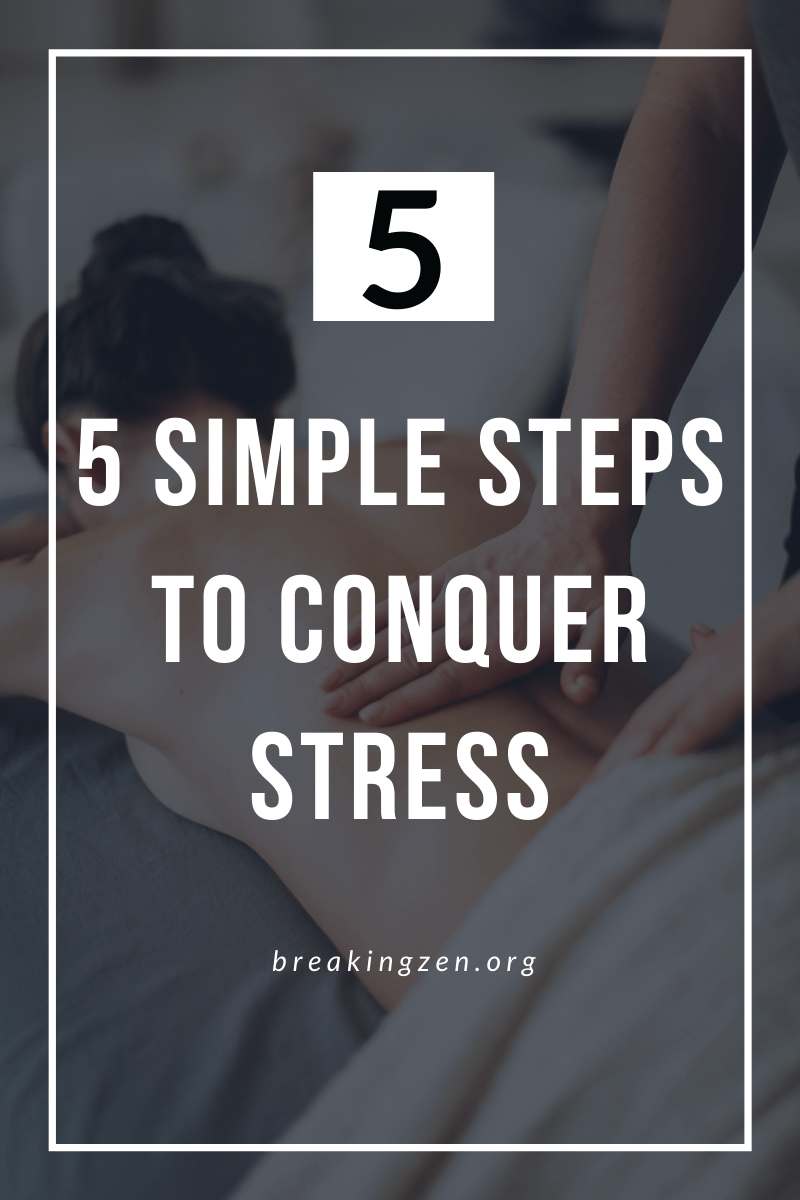Introduction: What is Anxiety?
Discover 5 easy activities you can practice to incorporate self care for anxiety control.
Anxiety is a feeling of nervousness, worry, and unease. People living with anxiety will experience a myriad of different symptoms including a racing heart, dizziness, nausea, and more. Furthermore, they may have a hard time sleeping or concentrating. Anxiety is not just an occasional feeling- it’s a mental disorder that can impact someone’s day-to-day life.
The good news is this. Some easy-to-implement strategies can make a huge difference in keeping your anxiety at bay!
As an Amazon Associate, I earn from qualifying purchases.
Self Care for Anxiety Control
People living with anxiety may experience some or all of the following:
- Uncontrolled anxiety can lead to:
- Depression
- Nervousness
- Racing heartbeat
- Chest pains
- Dizziness
- NauseaFor many people living with anxiety, self-care is about reducing the symptoms of anxiety to improve quality of life
Self-care for anxiety can include:
- Stress management techniques such as breathing exercises and meditation
- Physical activity
- Exposure therapy (facing the feared object or situation) or cognitive behavioral therapy (CBT)
- Support from family and friends
- Engaging in hobbies and interests
- Talking through feelings with a therapist, friend, or family member.
5 Easy Ways to Manage Stress
When incorporating self care for anxiety control, here are five techniques that will help you manage stress:
- Listen to Music
- Write a Journal Entry
- Take a Break
- Spend Time Outdoors
- Paint or Draw
1. Listen to Music
Engage your auditory senses when dealing with anxiety.
Music has been shown to have a powerful effect on brain activity. Listening to music stimulates the release of dopamine, which creates a state of euphoria, and the production of oxytocin, which helps you feel more connected with your environment. The right music can have an even more calming effect on people suffering from anxiety.
In addition to music, there are a number of great apps that have been designed to help individuals manage their anxiety. These include:
- Calm
- Breathing Zone
- and Headspace.
2. Write a Journal Entry
Writing a journal entry can be an effective way of practicing self care for anxiety attacks.
Journaling is a very effective way to relieve stress and anxiety in your life. It also can be used to help you understand your thoughts and feelings better.
The following are some of the benefits of journaling:
- Helps you release pent up emotions, frustrations, anger, sadness, worries, stresses
- Encourages introspection so you can see how these emotions affect your everyday living
- Improves emotional well being by giving you a sense of control over your life
- Encourages self reflection so you can notice patterns when it comes to emotional reactions to events in life
- Helps you connect with yourself when things are overwhelming or confusing
3. Take a Break
Sometimes, we just need to take a break.
Sometimes, the best thing one can do for oneself is to take a step back and relax.
Taking a break can help us clear our heads and get out of the cycle of negative thoughts. It can also help us find inspiration for creative ideas that will allow us to solve our problems or work more productively.
4. Spend Time Outdoors
It’s no secret sunshine has a direct effect on our moods. And getting outside often can be an excellent way to incorporate self care for anxiety control.
It’s no secret that sunshine has a direct effect on our moods. With the recent rise in depression and anxiety, many people are turning to spend time outdoors as a way to ease their symptoms.
- Sunshine stimulates serotonin, which is a neurotransmitter that regulates mood and sleep cycles
- Spending time outdoors also helps you to get in touch with your surroundings and can reduce feelings of loneliness and isolation
- Being outside in nature provides us with access to natural light, which is beneficial because it contains vitamin D
5. Paint or Draw
Even though art or painting may seem like a hobby, it is helpful for managing anxiety and mental health. Painting helps people who are feeling stressed to reduce their anxiety and it improves moods.
Painting has been shown to reduce the anxiety of people but this does not mean that you can use painting as a replacement for your medication or other treatments. Your doctor should always be consulted before you try any new treatment option.
Conclusion
In the end, practicing self-care for anxiety relief can keep stress at bay!
While there is no cure for anxiety, the right tools and resources can make it manageable. Anxiety is a delicate condition that can often be triggered by a single event or thought. It can lead to sleepless nights, shaking hands, a racing heartbeat, and a feeling of dread.
Anxiety is one of the most common mental health issues in America. It’s also an incredibly isolating experience. But with the right tools, you can start to take control of your life again.
Practice these self-care for anxiety activities and see which ones help you the most!
- Self Care for Anxiety- 5 Simple Steps to Conquer Stress
- Manage Stress Naturally With Meditation: 7 Simple Steps to Meditate for Anxiety Relief
- 9 Easy Ways to Support Your Friends Business (And Get To Know Their Work)
- 6 positive choices you can make today for a better tomorrow.
- How To Make A Vision Board Online With 4 Easy Steps
